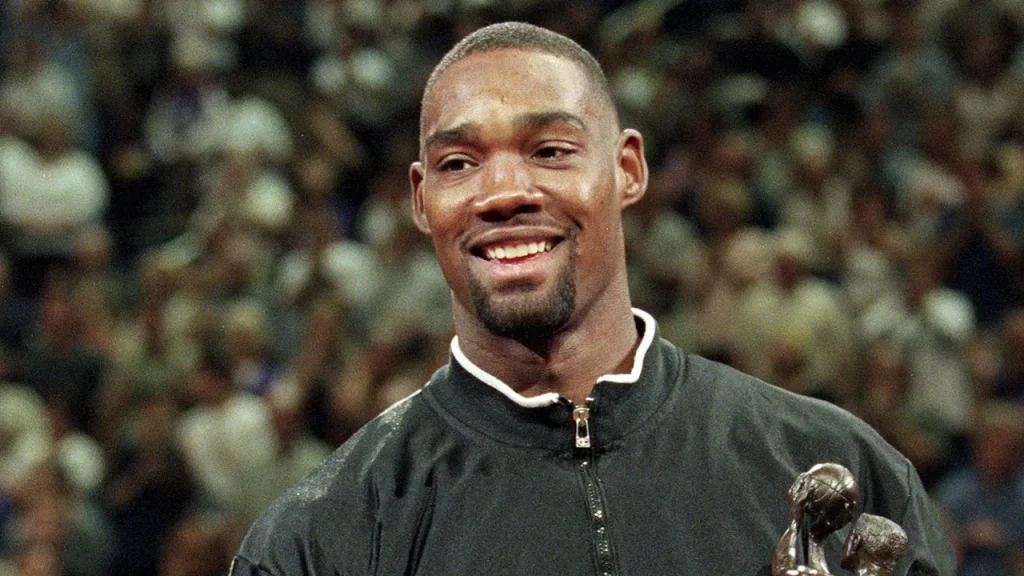Rodney Rogers: A Legacy of Resilience and Inspiration
Former NBA star and Wake Forest legend Rodney Rogers passed away at age 54 from natural causes related to the spinal cord injury he sustained in 2008. His wife, Faye Rogers, announced his death with a heartfelt statement highlighting how Rodney remained “a light – positive, motivated and full of the quiet strength that inspired everyone around him” throughout their challenging yet blessed 18-year journey following his accident. The dirt bike accident on the day after Thanksgiving in 2008 left Rogers paralyzed, but his unwavering spirit and positive outlook on life continued to inspire countless people, eventually earning him Wake Forest’s Distinguished Alumni Award in 2022, one of the highest honors the university bestows.
Before his NBA career, Rogers established himself as one of Wake Forest’s greatest basketball players. His collegiate journey was marked by extraordinary achievements – he was named ACC Freshman of the Year in 1991 after leading the team to their first NCAA Tournament appearance since 1984. His star continued to rise as he earned first-team All-ACC selections in 1992 and 1993. His collegiate career peaked in 1993 when he led Wake Forest to the Sweet 16, earning him ACC Player of the Year and first-team All-American honors. Rogers holds the distinction of being the only Wake Forest player and just the seventh ACC player ever to win both ACC Freshman of the Year and ACC Player of the Year, cementing his place in the Wake Forest Sports Hall of Fame.
Rogers’ impressive college performance led to him being selected ninth overall by the Denver Nuggets in the 1993 NBA Draft, launching a successful 12-year professional career. Throughout his NBA journey, Rogers became known for his versatility and consistency, averaging 10.9 points, 4.5 rebounds, and 2.0 assists across 866 games. His career took him through seven NBA teams – the Denver Nuggets, Los Angeles Clippers, Phoenix Suns, Boston Celtics, New Jersey Nets, New Orleans Hornets, and Philadelphia 76ers. The pinnacle of his professional career came during the 1999-2000 season when he was named the NBA’s Sixth Man of the Year while playing with the Phoenix Suns, recognizing his valuable contributions coming off the bench.
The NBA community expressed their sadness at Rogers’ passing, releasing a statement that highlighted how “he will be remembered not only for his achievements on the court but also for the extraordinary resilience, courage and generosity that he demonstrated throughout his life – qualities that inspired so many.” Indeed, Rogers’ legacy extends far beyond his statistical achievements or awards. After his career-ending injury, rather than retreating from public life, Rogers embraced his new reality with remarkable courage. He became an advocate for spinal cord injury awareness and rehabilitation, using his platform to inspire others facing similar challenges. His unwavering perseverance in the face of adversity transformed him from a basketball hero to a broader symbol of human resilience.
Rogers’ impact on both basketball and his community was profound and multifaceted. At Wake Forest, he helped revitalize a basketball program, bringing it back to national prominence. In the NBA, he exemplified professionalism and versatility, adapting to different teams and roles throughout his career. But perhaps his greatest contribution came after basketball, when he showed that a person’s worth isn’t measured by their physical capabilities but by their character and determination. The way Rogers lived his life after his accident – with dignity, purpose, and a commitment to helping others – offered powerful lessons that transcended sport. His willingness to share his journey, including its difficulties, created connections with people facing their own challenges across all walks of life.
Rodney Rogers is survived by his wife, Faye, who stood steadfastly by his side throughout his post-injury journey, and his three children: daughters Roddreka and Rydeiah and son Rodney Rogers II. In her statement, Faye expressed deep gratitude for the unwavering support from both the Wake Forest and NBA communities over the years. As the basketball world mourns the loss of a remarkable athlete and even more remarkable human being, Rogers’ legacy lives on through his family and the countless lives he touched. His story remains a powerful reminder that true greatness isn’t just about achievements accomplished in the spotlight, but about how one responds to life’s most difficult challenges when the cameras are no longer rolling. Rodney Rogers faced those challenges with grace, courage, and an indomitable spirit that will continue to inspire for generations to come.


